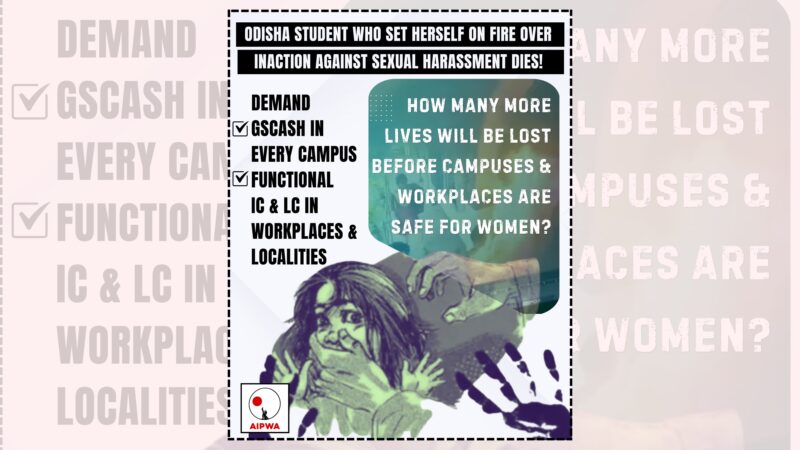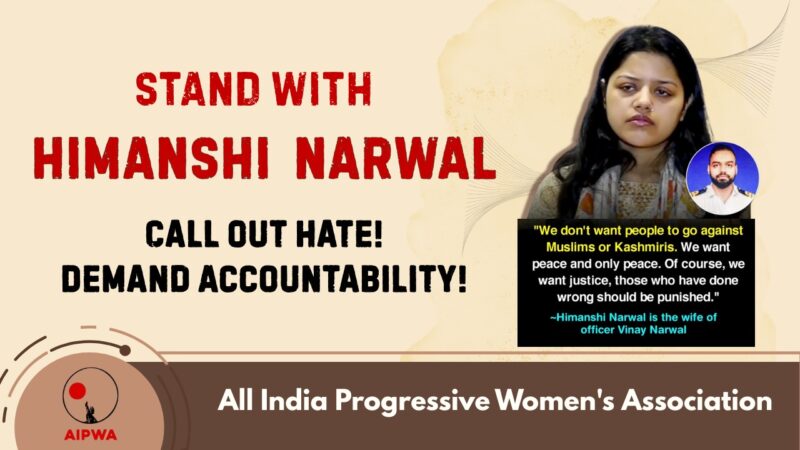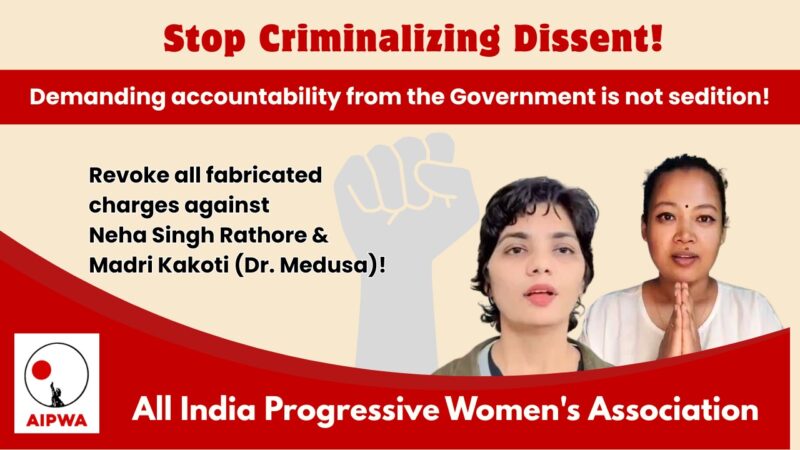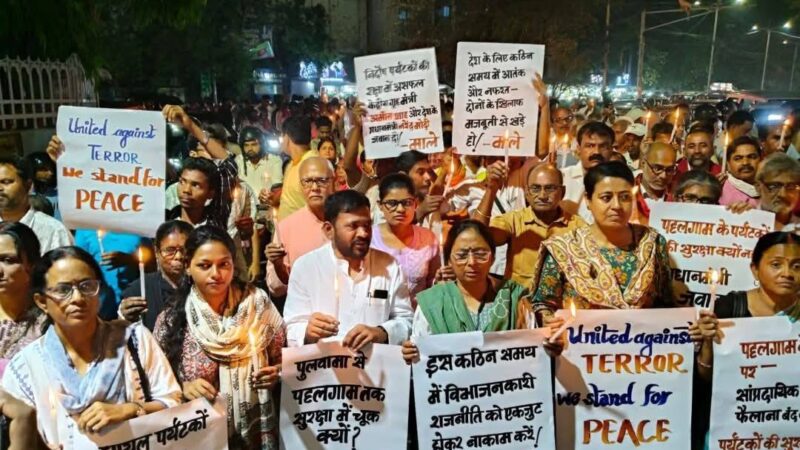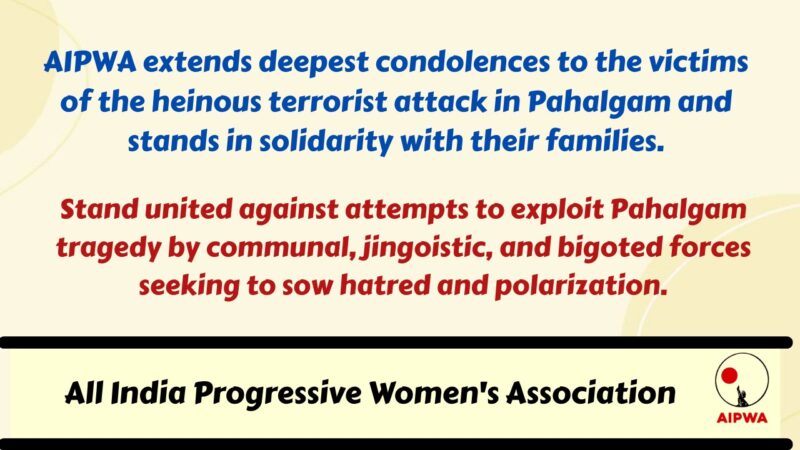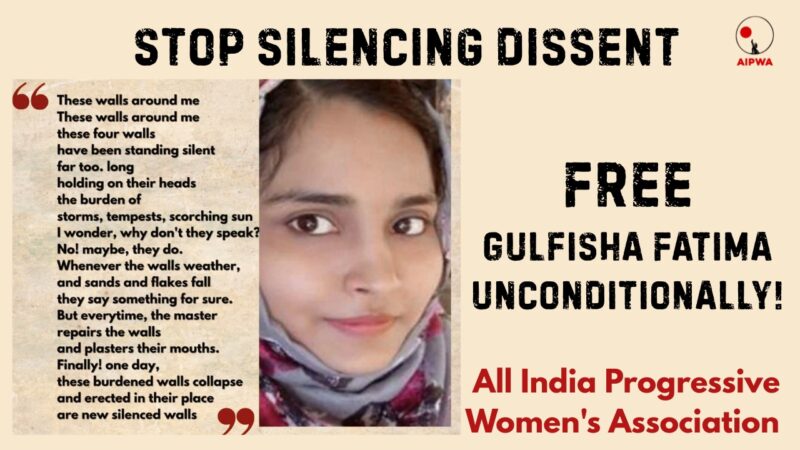AIPWA Condemns the Murder of Tennis Player Radhika Yadav
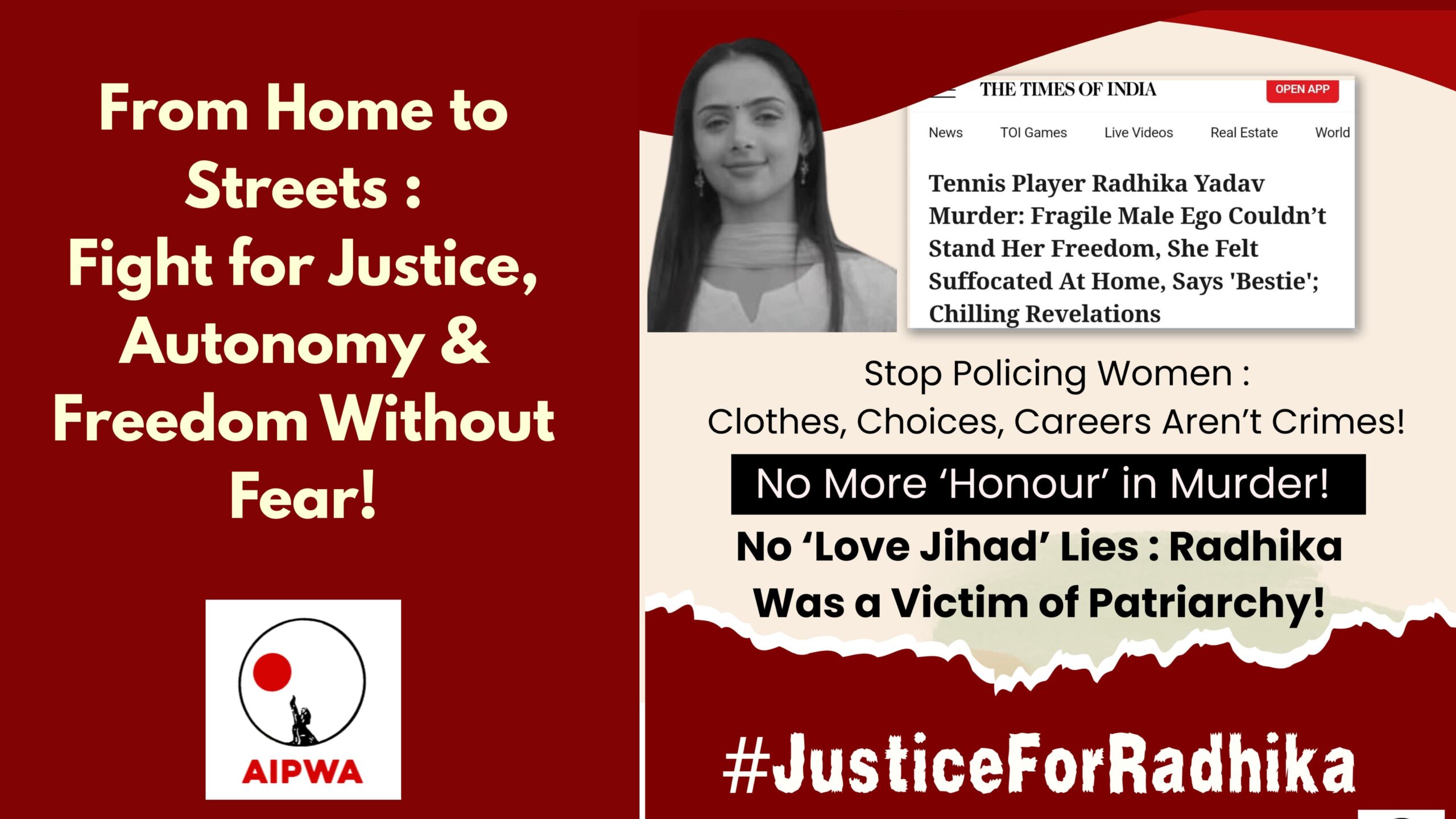
From Home to the Streets : Fight for Justice, Autonomy & Freedom Without Fear!
The All India Progressive Women’s Association (AIPWA) strongly condemns the horrific killing of 25-year-old Radhika Yadav, a talented state-level tennis player and coach, allegedly shot dead by her father in their Gurgaon home. Radhika had represented India at the international level and was coaching other young players at the time of her death.
Radhika was killed not because of any “momentary lapse” but in the context of a society that cannot tolerate an independent, outspoken young woman. Her close friends have stated that she was shamed for her clothes, monitored constantly, and made to feel suffocated within her own home. This tragedy speaks to a larger, systemic crisis, the persistence and invisibilisation of violence from natal families.
Traditionally, the focus on domestic violence in India has remained limited to the marital home. But studies and survivor testimonies have long shown that natal families, including parents, siblings and extended kin, are often the first site of control, abuse and punishment, especially when women assert their autonomy, choose relationships or defy gender norms. Yet, there is no dedicated legal framework recognising or addressing violence from natal families. This gap continues to cost women their safety, their freedom and their lives.
We are also deeply disturbed by the communalisation of Radhika’s death, with right-wing social media users propagating baseless “love jihad” claims simply because she had appeared in a professional video with a Muslim artist. This vile attempt to communalise a case of gendered violence reflects the patriarchal logic of Hindutva, where women’s bodies, choices and public presence are policed under the garb of honour and nationalism.
Radhika’s story is not an aberration. It is a reminder that patriarchy thrives within the family, and that women’s right to live freely continues to be treated as a threat. The media must act responsibly, avoid sensationalism and centre the structural violence at play. The state must stop shielding the family as a sacred, untouchable institution and create mechanisms that recognise and redress natal family violence.
AIPWA demands justice for Radhika and renewed political will to confront the violence that begins at home.
